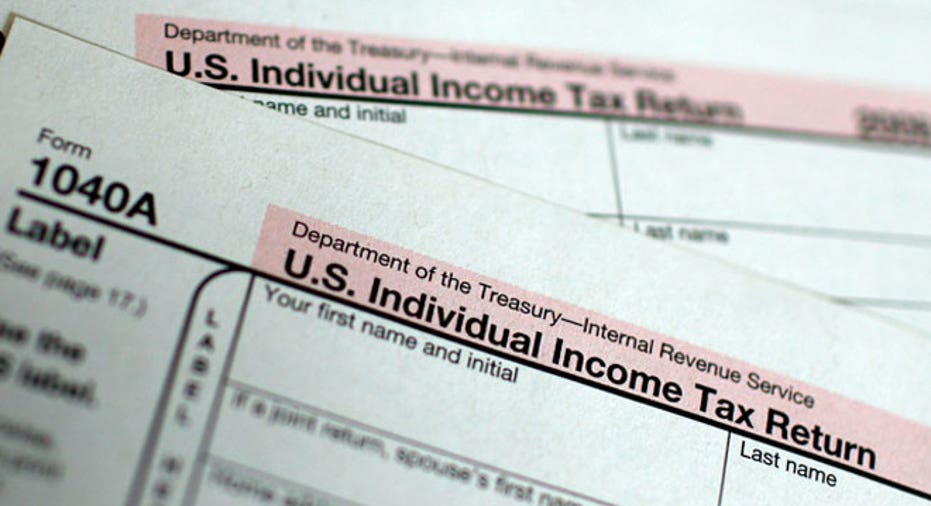What to Do if You Can't Pay Your Taxes

As much as we’d all like a refund this tax season, not everyone gets money back from the IRS. If you’re not prepared for it, owing money on your taxes can seriously stress your budgets and, potentially, your credit.
If you’re not sure whether you’ll owe or be owed, there’s no better time than now to get started on your taxes. There are advantages to filing early, but if you get started and realize you’re going to have to spend a little extra come April, at least you have some time to come up with a game plan.
Figure Out What You Owe
Perhaps you’ve been getting a little bit more mail lately — start sorting through any tax forms you may have received from employers, financial institutions or healthcare providers in the past few weeks, follow up with anyone who should be sending you one and look into any deductions you need to prepare to claim.
It’s best to approach deductions as a yearlong process (take note of business expenses, make charitable donations here and there), which is all the more reason to get going if you haven’t started yet. Keep an eye out for one of the most loathed tax forms of all, the 1099-C. If you had an outstanding debt canceled in the past, you may receive a form demanding you pay taxes on it. Though you may have to pay, there are also some situations in which you may not owe that money.
Once you have everything collected, start doing the paperwork, for which you can use one of a variety of free and subscription services. You can go the paper-and-pen route with all those forms you collected, or you can use an online service that allows you to save your progress and file when you’re ready. When you get to the point of figuring out what you owe the IRS or how much you will get back, you should consider your next steps.
Explore Payment Options
There are many ways to send money to the IRS and get that pesky tax bill taken care of. If you can afford to absorb your tax payment into your regular budget or savings, you can send a check or transfer the money from a bank account. It’s no fun to bear the extra expense, but it’s a good thing to avoid going into debt over taxes.
Should your bill be more than you can reasonably expect to pay in full by April 15, you can consider paying on a credit card or taking out a personal loan to cover the cost. The key in both these scenarios is to use a product that minimizes the amount of interest you’ll incur, so make your choices wisely. Yes, adding to your credit card debt may hurt your credit utilization ratio (thus negatively affecting your credit scores), and taking out a personal loan results in a hard inquiry on your credit reports (another small ding), but not paying the IRS could result in a tax lien down the road. Paying off those debts should be a top priority once you’ve satisfied your tax obligations.
There’s also the option of entering an installment agreement with the IRS — it’s setting up a monthly payment plan until you’ve paid the full amount you owe the IRS.
The non-option is to not pay: Failing to pay your taxes will result in a tax lien on your credit reports, which is a huge negative and can cause your credit scores to fall off a cliff. We’re talking about a 100-point or so drop, depending on your credit standing. Once you’ve paid it, the lien stays on your credit reports for seven years — however, you can request in writing that the IRS remove it once it’s paid. Ultimately, though, it’s best to spare yourself the credit misery and figure out a way to pay.
Decide on a Plan
Each of your options presents different consequences for your credit profile, so you’ll want to have a good grasp on where you stand before you file. You should check your credit reports regularly to make sure everything is accurate. And looking at your credit scores will show you how your behaviors have impacted your creditworthiness.
For example, if you look at your free Credit Report Card and see low credit scores, you may not have the option of getting a personal loan or low-interest credit card in order to pay your tax bill. Or maybe you’ll see that your credit utilization is low, but find that by paying your taxes with your credit card (therefore increasing your utilization rate), you may negatively affect your credit scores. As you go through the process of paying your debt to the IRS, you can monitor how your progress translates into credit score changes, allowing you to make educated financial decisions in other areas of your life.
Look Ahead
Now that you have a plan for paying your taxes, start thinking about the future. You may want to adjust how much you have withheld from your paycheck for taxes, or perhaps you need to add more to your savings as the year goes on so you can afford to pay your taxes in full next year. It also helps to take the fresh experience of preparing to file your taxes (aka the joyous task of collecting and filling out paperwork), and use it as motivation to keep track of things as the year goes on, so next year’s tax season is less stressful.
Read More from Credit.com



















